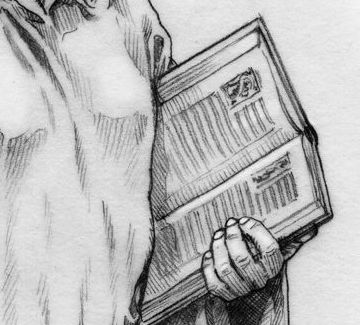“...every moment from morning to night is spent in work or prayer...”
A medieval household would expect to spend a part of every day in group prayer, not just on Sundays. The priests and clerics in a lordly household also had administrative duties – hence the phrase ‘clerical work’ to describe paperwork.
“...I take my meals in the hall, and I’m also paid...”
The household accounts from the medieval period show that money was only one part of a servant’s reward. They also received food, drink, clothes and a sleeping space. Some servants had specific ‘perks’ such as a right to the skins of all animals cooked in the kitchen.
“...A clever man can become a steward or chamberlain...”
Great lords depended on efficient and loyal officers to run their estates, and rewarded them well. Gerald de Windsor, who ran the first castle at Pembroke for the de Montgomery family, became an important man himself, with his own estates.
“...The bishop of St Davids...lives just like a lord...”
Medieval bishops were not just religious figures - they carried out the same administrative and military duties for the king as the other lords. However, because bishops could not legally marry, there was no inheritance of the title.
